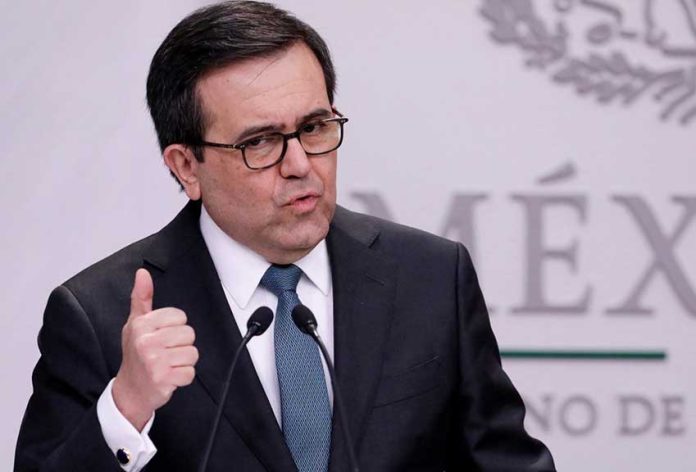Economy Secretary Ildefonso Guajardo has rejected any suggestion that Mexico betrayed Canada by reaching a bilateral trade deal with the United States after accusations by some Canadians it had done just that.
“Here nobody betrayed anyone,” Guajardo said in a radio interview yesterday with Grupo Fórmula.
The economy secretary, who has been Mexico’s chief negotiator in the drawn-out talks to ink an updated NAFTA deal, added that he has a “great personal relationship” with Canadian Foreign Minister Chrystia Freeland and that he can “look her in the eyes” with “integrity and conviction” and tell her that there was no betrayal.
“I have no doubts about my moral authority to continue working with the Canadians, to move forward and to support the vision that . . . this agreement has to be trilateral,” Guajardo said.
In Canada there have been charges that Mexico “threw Canada under the bus” and betrayed its NAFTA partner by negotiating a two-way deal.
United States President Donald Trump announced August 27 that Mexico and the United States had reached a new trade pact that could exclude Canada. After four days of negotiations in Washington D.C. last week failed to yield a trilateral agreement, he notified U.S. Congress Friday that his administration intends to sign a new trade agreement in 90 days with Mexico and Canada, if the latter “is willing.”
The next day, he wrote in a Twitter post that “there is no political necessity to keep Canada in the new NAFTA deal” and that “if we don’t make a fair deal for the U.S. after decades of abuse, Canada will be out.”
Announcement of the bilateral arrangement, which Trump said would be called “the United States-Mexico trade agreement” because NAFTA has a “bad connotation” for the U.S., followed five weeks of separate negotiations between the two countries that resolved a range of contentious issues including rules of origin for the auto sector and the so-called sunset clause, which was scrapped and replaced with a six-year “review.”
Guajardo charged that holding separate talks with the United States was nothing out of the ordinary.
“The bilateralism of the negotiation has been a constant since day one,” he said, adding that a trilateral conversation would take place once all two-way issues have been solved.
Guajardo said he was hopeful that a deal between the United States and Canada — paving the way for a three-way accord — would be reached by the end of the week.
“I would hope there will be white smoke for this Friday,” he said, referring to the traditional announcement of the election of a new pope.
Guajardo added that after Friday the time frame became more complex. Mexican officials hope that a new deal can be reached before President Enrique Peña Nieto leaves office at the end of November.
Senior United States and Canadian officials resumed talks in Washington D.C. today but Canadian Prime Minister Justin Trudeau indicated yesterday that Canada would not cave in to U.S. demands.
“As I’ve said, no NAFTA is better than a bad NAFTA deal for Canadians,” Trudeau told reporters.
Before entering meetings with United States Trade Representative Robert Lighthizer today, in which irksome issues such as access to Canada’s dairy market and the future of a dispute resolution system will be on the agenda, Freeland said “we are looking forward to constructive conversations.”
The Mexican government said in a statement Friday that it will closely monitor the talks and continue to push for a deal of which Canada is part.
